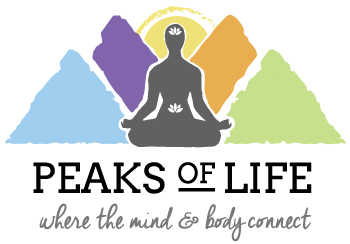Have you heard of the term “negativity bias?” Rick Hanson, a psychologist, coined the term to describe how our brains are more likely to hold onto negative experiences versus positive ones. He says that when we experience something negative in our lives it sticks to us like velcro. On the other hand, when we experience something positive in our lives our brains are like Teflon – they slide right off.
Think about the last time someone criticized you or made a negative comment about you. Did you replay it in your head, get upset, angry, annoyed? Did you try to let it go, but the negative comment, discussion, feedback, argument, etc., stayed with you? Maybe you tried to tell yourself it was not a big deal. It may have worked for a while, but then you started thinking about it again. Did you start to beat yourself up, because you couldn’t stop thinking about it?
Now can you think about a time when someone gave you a positive comment or feedback? It could be a time when a friend thanked you for helping them out, or someone bought you dinner or an unexpected present, or maybe a co-worker told you that you did a great job with a project. Now, do you remember how you responded to the comment? Did you brush it off, negate it, feel uncomfortable, and tell them it was no big deal – that there is no need to thank or praise you? (If you were able to accept and feel the compliment. I want to celebrate with you!)
Rick Hanson further explains that the negativity bias came about because it is what helped our ancestors stay alive. Back in the day, to avoid potentially deadly obstacles when hunting and gathering for food, they had to be on guard. Each day they had to make the decision on whether to approach something or avoid it. They could miss gathering food for a day, but if they didn’t avoid the deadly obstacle, they were not going to be around to gather food for the next day.
Does this topic sound depressing? Did you immediately think negatively? Did you find it easier to recall a negative comment versus a positive one made about you?
Don’t worry, there are things we can do to help us shift our focus from the negative to the more positive ones. I’m not saying that we are working towards never having negative thoughts in our life. That is not realistic. Although, being AWARE that our brains are more likely to hold on to the negative vs the positive, we can make the choice to shift it.
Start by picking a day to play and be curious. Observe and be aware of when you are thinking negative thoughts. What are your thoughts when you first wake up in the morning? Did you wake up late and now are beating yourself up for it? What are your interactions with your family, friends, coworkers? Did someone make a comment that immediately made you feel negative, defensive? If you had to drive somewhere, did you find yourself getting upset because a car cut you off, or was going too slow or too fast? Notice how you feel about these experiences. Were you able to let go of them or did you find they affected the rest of your morning, afternoon, or week?
There is no right or wrong, good or bad. You simply want to start with being aware of how the negativity bias is showing up in your life. Be gentle and compassionate with yourself. You are not alone. This is something we all experience.
Next, pick a day when you are going to begin detaching yourself from the negativity. You are still going to be curious and aware of when you are thinking negative thoughts, but now you are going to choose to change it, shift it, and/or detach from it. For instance, let’s say you woke up late and you are beating yourself up for it – you are aware of the negativity. Now you can choose to either reframe the situation and tell yourself it is okay that you are running late, it happens, you will make sure you wake up earlier tomorrow or you can take a pause to visualize yourself wrapping the thoughts in loving energy and feel the negativity dissolve. Another option is to forgive yourself in the moment. Repeat the Ho’ponopono prayer (I am sorry, Please forgive me, Thank you, I love you) to help shift your energy. Remember everything is energy, and we can shift the energy by changing our thoughts.
Now let’s talk about a simple technique to help you increase your focus on positive experiences. Allow yourself to consciously sit with the positive experiences. For instance, the next time someone gives you a compliment, take a moment to let it sink in and repeat it to yourself. Say thank you and let them know much you appreciated the comment. If you can, stop, place your hand on your heart, and for 20-30 seconds recall the positive experience. You can also write it down, using a journal or a document on your computer where you collect all of your positive experiences. Then either once a day or week, re-read them and allow yourself to reconnect to the positive feelings, energy, and vibrations of those positive experiences.
The negativity bias can impact your behavior in a powerful way. However, when you are aware of its impact – you can make the decision to shift your energy, your thoughts, your reactions towards a more positive outlook. When you consciously focus on happier, positive thoughts in a more mindful way – you can break free from the negativity bias and positively boost your mental well-being.
“When you focus on the good, the good gets better.” Abraham Hicks

